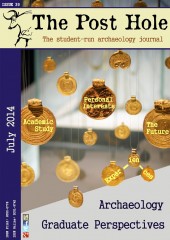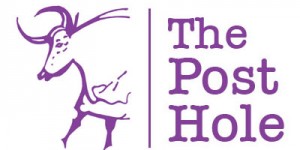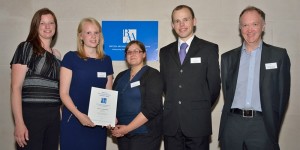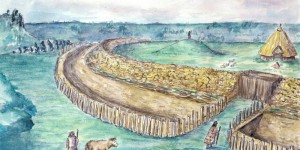The last three years of my degree have been so much more than learning archaeological practice for me. We all know the reference Hume made to historical archaeology simply being a ‘handmaiden’ to history (Hume 1964) but I believe the skills and theory grounded in all periods of archaeology are seriously underestimated, especially in an undergraduate degree. Although I don’t intend to continue studying practical archaeology I have been in the fortunate position over the last three years of being able to expand my research into heritage studies, specifically museology. I hope to continue this study through a Masters degree.
My undergraduate studies, especially my dissertation, have been led by a strong belief that participation for all is essential for both archaeology and heritage generally. My dissertation focused on the participation of volunteers within a small, independent, local history museum in Castle Donington, Leicestershire. I hoped to identify a working plan for these volunteers, as well as identifying the role that local history museums are able to play within communities. In order to develop a management plan which was realistic and ‘usable’, an approach known as participatory action research was applied. This aims to use ‘collaborative research, education and action...to gather information to use for change on social...issues. It involves people who are concerned about or affected by an issue taking a leading role in producing and using knowledge about it’ (Pain et al. 2012). By exploring the social role of museums both within the community and participation within heritage, I hope that my dissertation has connected all of the beliefs and thoughts I have developed over the last three years. Although I had no experience within field archaeology before my degree, working at The Post Hole has not only allowed me to expand my archaeological thoughts and knowledge beyond the curriculum at university but also tied this perfectly to my views on participation within the subject area. I am passionate about the role that The Post Hole plays in allowing all levels of education to participate within archaeological academia and publication, and hope that this continues for many years to come. Through this, The Post Hole does not only play a part in allowing the participation of those who would often not be able to publish their work whilst presenting undergraduate archaeology as a hugely varied subject, capable of establishing a wide variety of skills and knowledge.
Bibliography
- Hume, I. N. (1964) Archaeology: Handmaiden to History. The North Carolina Historical Review, 41 (2), pp. 214 -225.
- Pain, R., Whitman, G., Milledge, D. and Lune Rivers Trust (2012) Participatory action research toolkit: an introduction to using PAR as an approach to learning, research and action. Durham University/RELU/Lune Rivers Trust. [Online]. Available at: https://www.dur.ac.uk/resources/beacon/PARtoolkit.pdf (Accessed 11th June 2014).






